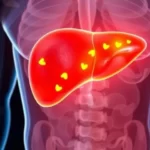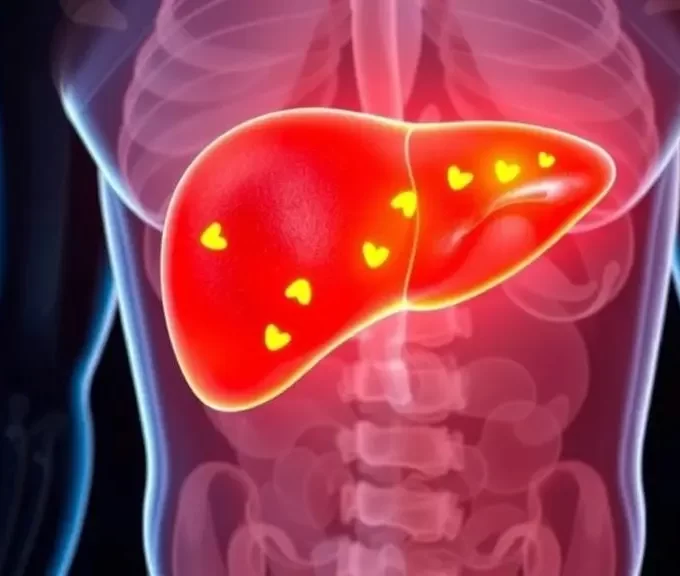An acute sore throat can present with a variety of symptoms, including irritation, pain, swelling, a burning sensation, and difficulty swallowing. In many cases, it may also be accompanied by fever, headache, fatigue, or even ear pain. These infections are typically caused by either viruses or bacteria, such as in the case of strep throat. While conventional medicine often relies on antibiotics for treatment, many individuals now seek a natural and effective alternative through homeopathic sore throat treatment, which focuses on alleviating symptoms and promoting the body’s natural healing response.
What is a Sore Throat?
A sore throat refers to a painful, irritated, or scratchy sensation in the throat that often worsens when swallowing. It may occur independently or as part of a broader respiratory illness. In many cases, sore throats are the body’s natural response to infection or inflammation, acting as a signal that something is irritating the throat’s lining.
In homeopathy, this condition is viewed as an indication of your body’s attempt to heal itself. Rather than suppressing symptoms, homeopathic remedies aim to support the immune response, offering a gentle and safe path to recovery.
Symptoms of a Sore Throat
While every person may experience sore throat differently, some of the most common symptoms include:
- Pain or discomfort when swallowing
- A burning or scratchy sensation in the throat
- Red or swollen tonsils
- White spots or pus on the tonsils
- Swollen lymph nodes in the neck
- Fever and chills
- Headache or body aches
- Fatigue or weakness
- Earache or muffled hearing
- Dry cough or runny nose
In some cases, a sore throat may be accompanied by a loss of voice, a tickling sensation in the throat, or a persistent need to clear the throat.
Causes of Sore Throat
Sore throats can be caused by a range of triggers, including both infectious and non-infectious factors. Here’s a breakdown of the most common causes:
Viral Infections: The majority of sore throats are caused by viruses, such as those responsible for the common cold, flu, or mononucleosis. Viral sore throats typically resolve on their own within a few days and are not responsive to antibiotics.
Bacterial Infections: A smaller portion of sore throats, such as strep throat, is caused by bacteria. These may present with white patches on the tonsils, fever, and swollen glands. Homeopathic remedies can still offer support and symptom relief in these cases.
Environmental irritants, such as dry indoor air, pollution, allergens, or exposure to smoke, can all irritate the throat lining. These cases are often chronic and may require remedies tailored to environmental sensitivity.
Overuse of Voice: Teachers, singers, speakers, and others who frequently strain their voices may develop sore throats due to muscular fatigue or inflammation of the vocal cords.
Repeated Infections or Weak Immunity: Frequent sore throats may be a sign of a weakened immune system. In such cases, constitutional homeopathic treatment can strengthen the body and prevent recurrence.
Homeopathic Remedies for Sore Throat and Tonsillitis
Homeopathy offers a personalized approach to sore throat treatment, focusing on matching remedies to your unique symptoms rather than relying on a generic diagnosis. Below are seven of the most frequently prescribed and effective homeopathic remedies for treating sore throats.
Aconite
Aconite is best suited for sore throats that appear suddenly, particularly after exposure to cold weather or wind. The person may experience anxiety, fever, and restlessness. The throat itself is dry, hot, and sore, with a scratchy feeling that worsens at night. Aconite is most effective when taken at the earliest signs of throat discomfort.
Apis Mellifica
This remedy works wonders when the throat is swollen, red, and shiny. The person may experience burning and stinging pain, and find relief from cold drinks or ice. Unlike most remedies, Apis suits those who are not very thirsty, despite inflammation. It’s advantageous in cases of acute tonsillitis, where swelling is predominant.
Arsenicum Album
Arsenicum is perfect for sore throats that burn and feel tight, with pain aggravated by swallowing. The key trait is that warm drinks and warm wraps bring relief. The person is often extremely fatigued, chilly, and may feel anxious. They’re also notably thirsty, but prefer frequent small sips rather than full glasses.
Belladonna
Belladonna is one of the most commonly indicated remedies in sore throat and tonsillitis. Symptoms include a sudden onset of high fever, red and inflamed tonsils, and burning pain in the throat. Swallowing is a complex process, yet the person often feels an urge to swallow constantly. Right-sided throat pain, flushed face, and thirst for cold drinks point toward Belladonna.
Hepar Sulph
This remedy is needed when the throat pain feels as if something sharp, like a fishbone, is stuck. The person may be extremely sensitive to touch and cold air. Warm drinks may offer some comfort, and the pain often radiates to the ears. Hepar sulph is particularly helpful in infections with pus or in cases progressing toward abscess formation.
Lachesis
Lachesis is often prescribed when the left side of the throat is more affected. The person feels as if there’s a lump that won’t go away, and swallowing liquids may worsen the discomfort, though solids might feel easier. The throat may appear purplish, and the person is extremely sensitive to pressure, often avoiding even the contact of scarves or collars.
Mercurius Solubilis
Mercurius suits throats that are raw, swollen, and ulcerated, often with excess salivation and offensive breath. The person may complain of a metallic taste in the mouth and a constant need to swallow. The tonsils may be bluish-red, and ulcers or pus might be visible. It’s particularly effective in strep throat or other severe bacterial infections.
Phytolacca.
In throats that are dark in color where the tonsils are dark red, the parts feel sore, and the pain on swallowing is at the root of the tongue, accompanied by a general aching in the back and limbs. It suits chronic follicular pharyngitis, characterized by a persistent desire to clear the throat of phlegm or a sensation of a hot ball in the throat, which worsens with hot fluids. The right side is more frequently the seat of the trouble. Graphites. Chronic sore throat, with the sensation of a lump in the throat. Baptisia is beneficial in treating an ulcerated sore throat, particularly one with an excessively offensive odor from the affected parts. Excessive putridity marks the remedy. Natrum arsenicosum. Dissecting room sore throat.
Kali muriaticum.
One of our best remedies for follicular pharyngitis is when there is a gray or white exudation, the tonsils are swollen and inflamed, and there are grayish spots or ulcers on them. It is almost specific for the form of ulcerated sore throat which results from gastric disturbances. The glands in the area of the throat are swollen.
Kali bichromicum.
Sore throat, with swelling of the tonsils, and ulcers which exude a purulent discharge; there are diseased follicles which exude a caseous matter; the coating of the tongue is yellow at the base; there is an accumulation of sticky tenacious mucus in the pharynx and pains in the Eustachian tubes. There is with Kali bichromicum a sensation of dryness, of burning and of rawness, or a scraping feeling as if something were sticking in the throat. Ammonium muriaticum has a sore throat with viscid phlegm, so tough that it cannot be hawked up. There is rawness in the naso-pharynx and hoarseness. Calcarea phosphorica, according to Cooper, is almost specific for adenoid vegetations in the naso-pharynx—Sanguinaria nitrate. In chronic follicular pharyngitis, Ivins considers this remedy a lifesaver, particularly when there is burning, soreness, and rawness in the pharynx.
Guaiacum
This remedy is considered almost specific in ordinary pharyngitis, when it is worse on the right side, where the tonsils are swollen. The patient’s throat is so dry that they must drink to assist with deglutition. The throat is less red than under Belladonna, and the follicles are involved, causing stinging pains in the throat or a burning sensation like pepper, which worsens in warm, moist air. Aching in the throat and neck, holds neck when talking. Pulsatilla. Fauces dark red or purplish and having the appearance of a varicose condition of the blood vessels; scraping, rawness, and dryness in the throat, without thirst.
Nux vomica
This is a remedy often overlooked in throat troubles, but it comes in more frequently than many others. It suits the irritated throats of smokers, drinkers, and preachers; there is a follicular rawness and scraping in the throat which is usually caused by irritation from tobacco smoke, liquors, or overuse of the voice. It is a chronic pharyngitis, and there may be atrophic white patches in the throat. There is also supra-sternal sensitiveness and a dry cough. Alumina. Useful in relaxed conditions of the mucous membrane of the throat, as in clergymen’s sore throat. The throat is dark red and the uvula elongated. Dryness is also a prominent symptom, characterized by a glazed look. Ferrum phosphoricum. Dry, red, inflamed, and painful throat, sore throats of singers and speakers. Gelsemium. Fauces dry and irritated and burning; the tonsils are inflamed. Senega is a most useful remedy in simple sore throats or when there are rheumatic complications. The 3rd potency is preferable. Sanguinaria nitrica. Chronic form of granular pharyngitis with a sensation of heat in the throat, and a thick, yellow or muco-sanguinolent expectoration.
Conclusion
Whether you’re facing a sudden onset of throat pain or dealing with recurrent tonsillitis, homeopathic sore throat treatment provides a holistic, side-effect-free solution. By choosing the remedy that closely matches your unique symptoms, you encourage your body’s healing mechanisms to act quickly and effectively.
Homeopathy doesn’t just suppress symptoms; it addresses the root cause, builds long-term immunity, and restores balance. If symptoms persist or if you experience difficulty breathing or swallowing, seek medical help immediately.
For more information or personalized care, consider exploring the option of working with a qualified homeopath through virtual consultations. Expert care ensures that you receive the correct remedy, potency, and dosage for your specific needs.
FAQs
Will Arnica help a sore throat?
Arnica is not typically used to treat a sore throat. It’s more effective for bruising, trauma, or physical shock. For throat pain, remedies like Belladonna or Hepar Sulph are more commonly indicated.
What is the best natural treatment for a sore throat?
Homeopathy offers some of the best natural options. Remedies such as Belladonna, Apis Mellifica, and Lachesis are selected based on your unique symptoms, offering fast and gentle relief.
Is Oscillococcinum good for sore throat?
Oscillococcinum is more commonly used for flu-like symptoms. While it may help if your sore throat is part of a flu syndrome, targeted remedies like Mercurius or Aconite are usually more effective.
What homeopathy is suitable for a burning throat?
For burning throat pain, Arsenicum Album, Apis Mellifica, or Belladonna are frequently prescribed. The proper remedy depends on whether the pain is alleviated by cold or warm drinks, as well as other personal symptoms.











